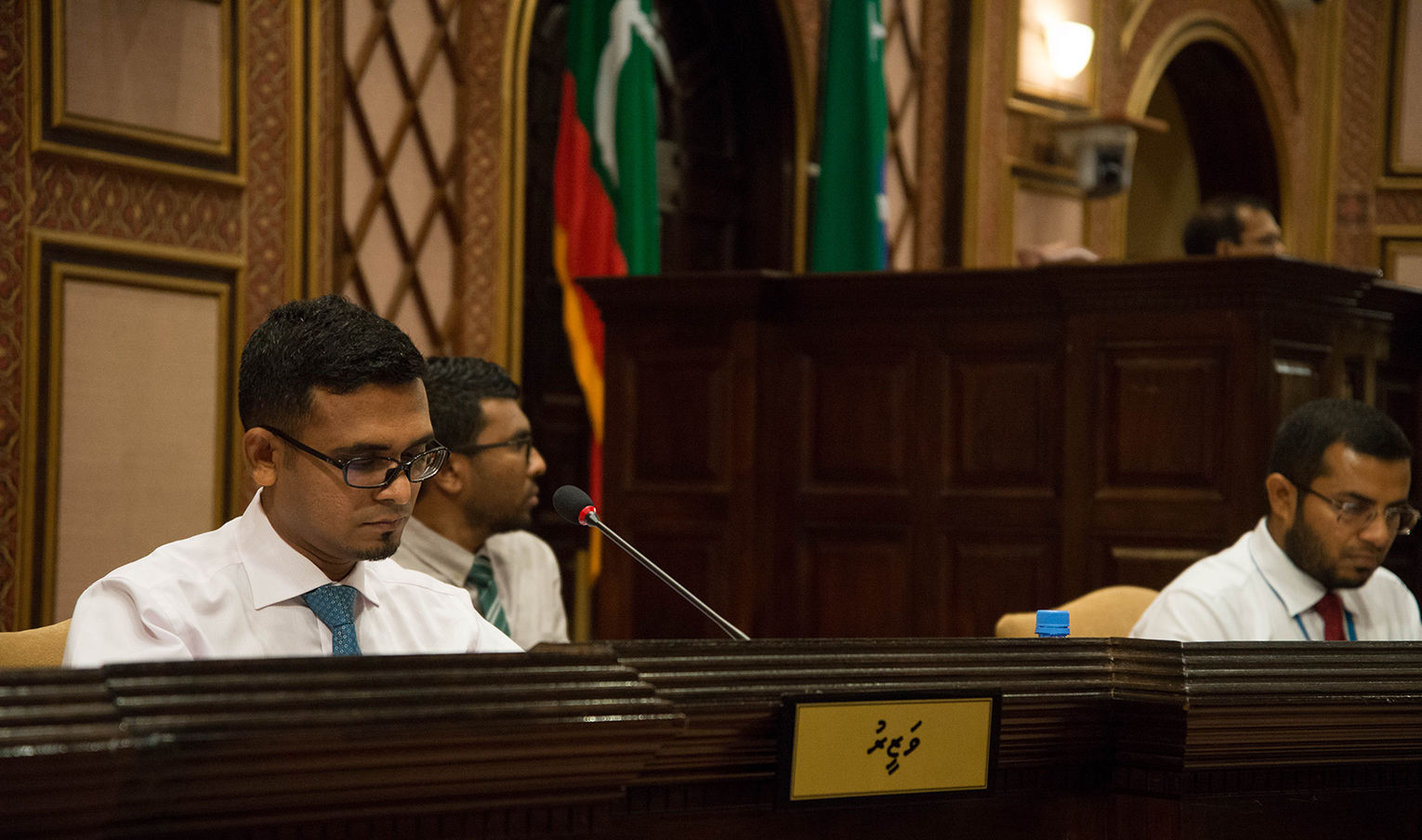Record MVR28bn budget proposed for 2018
Finance Minister Ahmed Munawar submitted for parliamentary approval a record MVR27.9 billion (US$1.8 billion) budget for 2018.

15 Nov 2017, 09:00
Finance Minister Ahmed Munawar submitted for parliamentary approval Wednesday a record MVR27.9 billion (US$1.8 billion) budget for 2018.
Opposition lawmakers continued to protest with chants of “government of thieves” while Munawar presented the budget projections.
“The goal of the 2018 budget is developing human resources for building the nation along with spending on infrastructure development without halt to complete the numerous ongoing projects,” he said.
Become a member
Get full access to our archive and personalise your experience.
Already a member?
Discussion
No comments yet. Be the first to share your thoughts!
No comments yet. Be the first to join the conversation!
Join the Conversation
Sign in to share your thoughts under an alias and take part in the discussion. Independent journalism thrives on open, respectful debate — your voice matters.




